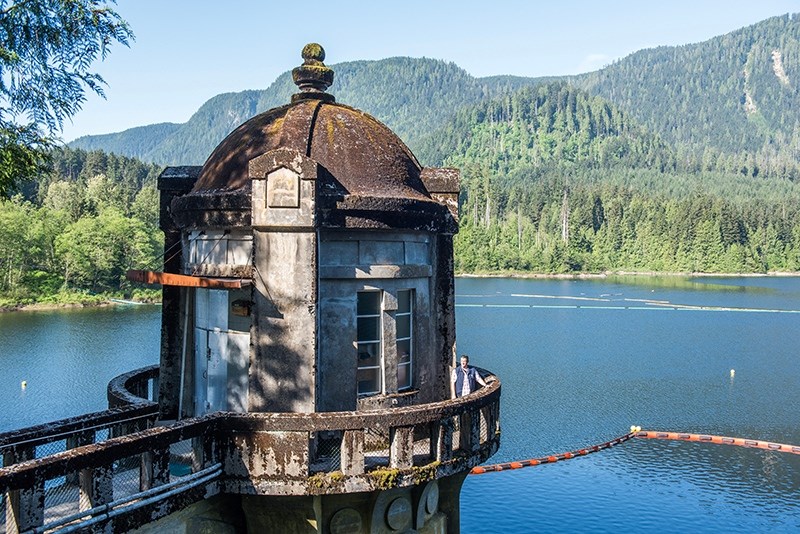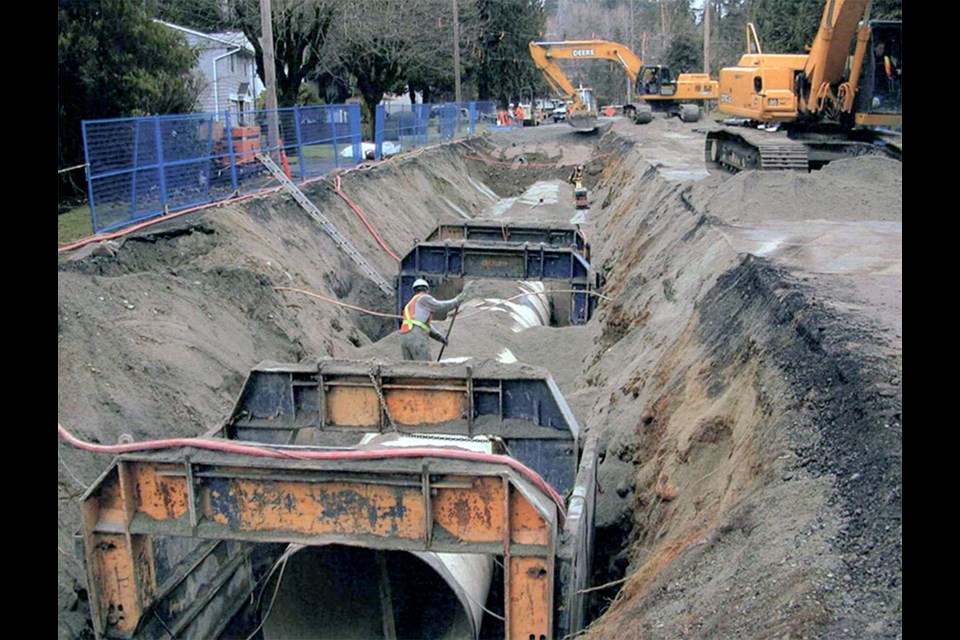Construction on a massive Metro Vancouver water main will start making its way through Coquitlam's City Centre neighbourhood next year.
Coquitlam council voted Monday in favour of an alignment option they said would limit the amount of disruption the $678-million project will cause over the course of its five-year construction period.
But traffic problems are still expected to be an issue and the city is asking Metro Vancouver to refine its plan for dealing with the impacts on motorists in Coquitlam's most densely populated area.
"We will be working with the neighbours," said Bob Cheng, Metro Vancouver's project manager for the water main construction. "We will be engaging with the public to determine what needs to be done to mitigate these impacts."
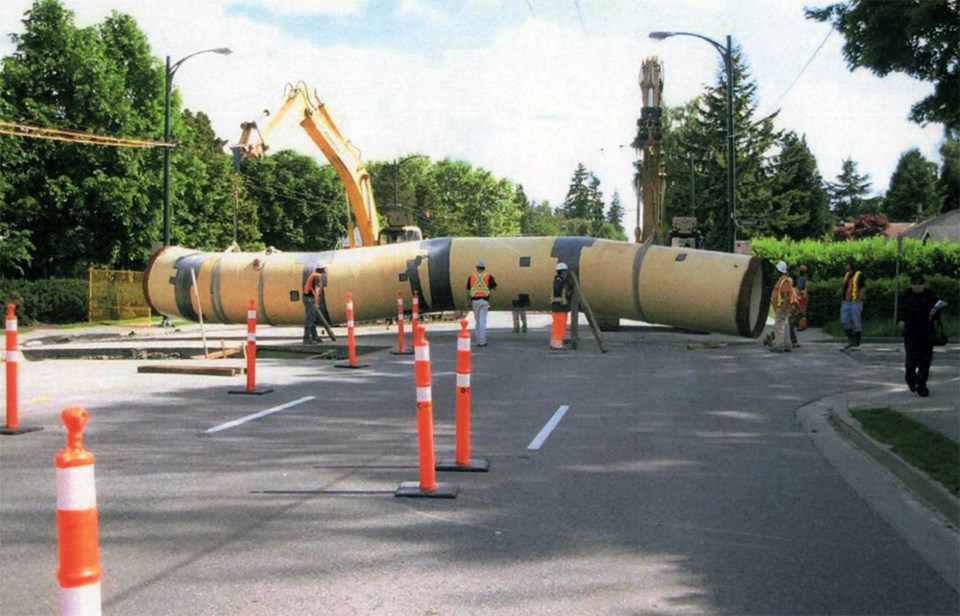
The chosen route will see the up to 3.2-metre-diameter pipe installed using a cut-and-cover method along Pipeline Road north of Guildford Way. Crews will then tunnel for 2 km underneath the Pipeline Road and Westwood Street corridor before open-cut construction resumes along Dewdney Trunk Road, Sharpe Street and a section of Lougheed Highway. Work will then continue moving to the Riverview lands before connecting with the Cape Horn reservoir.
"The most challenging traffic-management locations will typically be at intersections, such as David [Avenue]/Pipeline [Road]," staff said in a report to council. "It is recommended that [Metro Vancouver] be requested to provide a traffic-management plan that mitigates as much as possible the social impacts of this project."
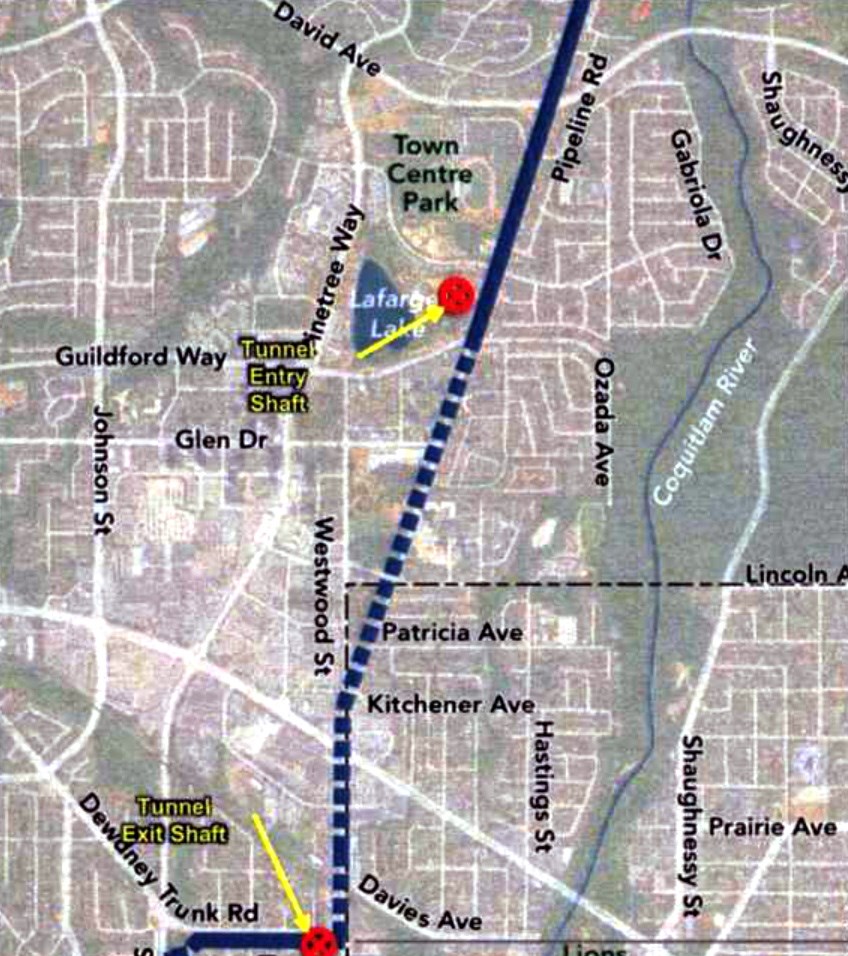
There will also be disruptions at Coquitlam's busy Town Centre Park.
The open-cut construction will mean the removal of many trees along the west side of Pipeline, which is the eastern edge of the park.
Metro Vancouver has committed to to funding a permanent right-of-way and to restore the park after the work is complete. It will also provide money to enhance the park and, in its southeast corner, the Inspiration Garden, according to a city staff report.
Coquitlam will also be taking the opportunity to expand Pipeline Road from two to four lanes north of Guildford.
Metro Vancouver initially proposed an alignment that went along the west side of Town Centre Park — Pinetree Way — but the city said it would be too disruptive to traffic and would interfere with the installation of future municipal infrastructure. The alignment approved by council Monday was a compromise route.
Now that Coquitlam has chosen its preferred option, the project will go to the Metro Vancouver board for final approval.
When the project is completed in 2026, it will increase water capacity east of the Tri-Cities into Pitt Meadows and Maple Ridge as well as south of the Fraser River. Currently, Coquitlam Lake provides 33% of the region's water; that is expected to increase to 60% by the end of the century.
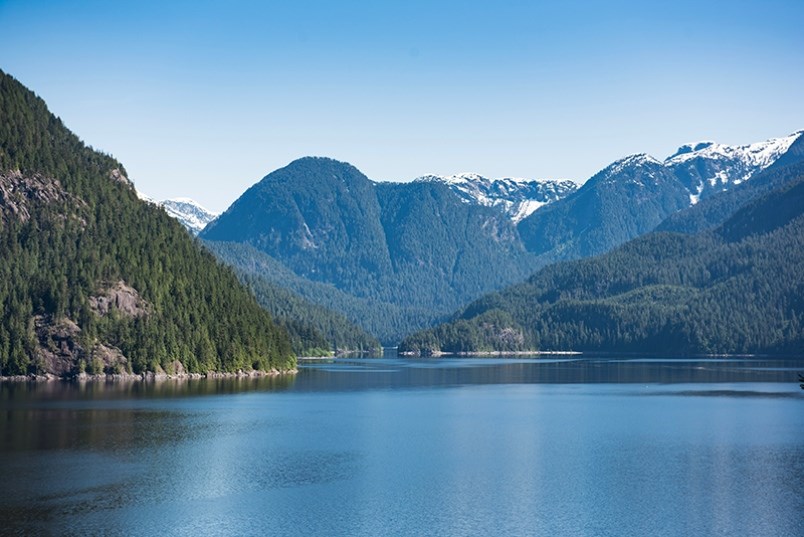
The water main through City Centre is not the only hole Metro Vancouver is digging in Coquitlam.
Last year, the region announced it would be spending $2.3 billion to build a new tunnel from the south end of Coquitlam Lake that will bring fresh water to a treatment facility at the top of Pipeline Road.
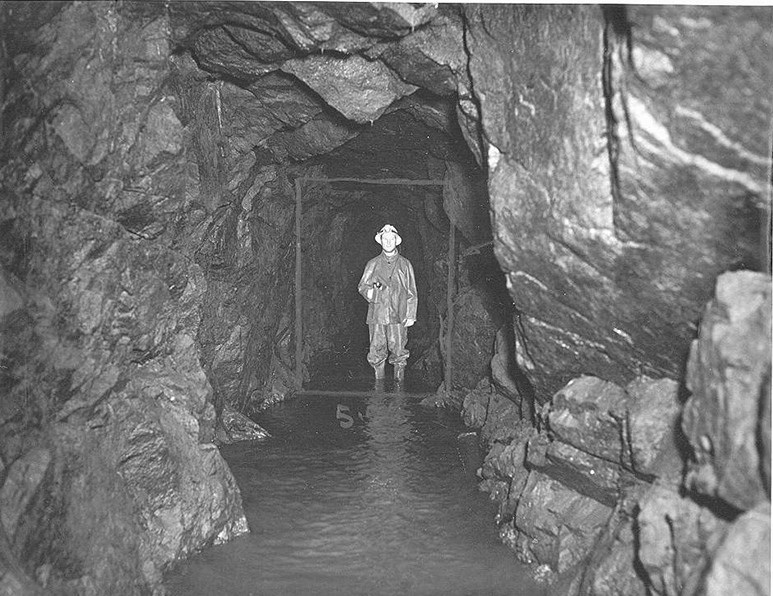
The problem with the current intake system, which dates back to the turn of the century, is that it draws water too high up in the lake, so when the lake level drops, water flow decreases. Although the tunnel was enlarged and upgraded in 1987, and per capita water use has been declining for some time, the region projects greater demand in the near future.
The Coquitlam Intake 2 tunnel and treatment facilities are part of Metro Vancouver’s long-range budget to 2024 and, once in operation in the mid-2030s, will double Metro’s water storage capacity, Inder Singh, the director of policy planning and analysis division with Metro Vancouver water services, told The Tri-City News in October.
